It sounds like an additive found in food but from September, 2021, E10 fuel will be causing headaches for hundreds of thousands of classic car owners. Rather than being a colouring agent or preservative, E10 is the new grade of unleaded petrol that the British Government will introduce this autumn. And it is potentially damaging to modern classics, classic cars and motorbikes alike.
Experts warn that the introduction of E10 petrol is the most significant threat to old cars since the switch from leaded to unleaded fuel. Four-star fuel was banned in Britain from 2000, on environmental grounds. It’s for similar concerns over air pollution and CO2 emissions that E10 will be dispensed by the nation’s petrol pumps.

However, the RAC has warned owners of cars built before 2002 that they should steer clear of the new petrol. It estimates that at least 600,000 vehicle owners will be affected. For those drivers, it is likely to mean increased fuel bills, costly vehicle maintenance or, for those that fail to take action, damage to cherished cars.
So what is E10 fuel, why is it being introduced and how can the classic car community prepare for the new fuel coming to our forecourts? Hagerty investigates.
What is E10?
Petrol in the UK already contains up to five percent bio-ethanol. You may have noticed as much; the labelling on unleaded pumps changed to E5 in 2019. But from September E10 will become the new standard with up to ten per cent bio-ethanol in the blend. Produced from crops such as sugar beet bi-ethanol isn’t a fossil fuel and is renewable.
Why is it being introduced?
It’s all about emissions. The Government has targeted 2050 as the year that Britain will reduce its greenhouse gas emissions to a net zero. But the journey starts now and by introducing E10 fuel they say that CO2 emissions could be reduced by 750,000 tonnes per year. That’s the equivalent of taking 350,000 cars off the road.
What’s the problem for classic cars?
Although many cars run on E5 without significant problems, doubling the amount of ethanol in the fuel can cause a variety of issues in olders cars. Ethanol is hygroscopic, which means that it absorbs water from the atmosphere. And that water, in turn, finds its way into your car. It can lead to condensation in fuel tanks, fuel lines and carburettors and cause corrosion in brass, copper, lead, tin and zinc components.
As ethanol is also a solvent it can eat through rubber, plastic and fibreglass, so hoses and seals are likely to perish more quickly because of the higher concentration of ethanol in E10. In Department for Transport tests, problems identified included degradation to fuel hoses and seals, blocked fuel filters, damaged fuel pumps, corroded carbs, blocked injectors and corrosion in fuel tanks. Rubber is particularly affected. The Federation of British Historic Vehicle Clubs (FBHVC) has a list of ethanol-friendly materials that can be used as replacements. [See end of story].
Finally, ethanol isn’t as energy dense as petrol, which means that the fuel-air mix could be leaner and, ironically, fuel consumption could actually be slightly higher than using E5 or ‘pure’ petrol.
How many cars are affected?
Although new cars sold in the UK since 2011 have had to be E10 compatible, the Society of Motor Manufacturers and Traders has estimated almost 8 per cent of petrol-engined vehicles here are not compatible with E10.
The RAC suggests that up to 600,000 cars on the road aren’t compatible with the new fuel. And it’s not just historic vehicles that are affected. Anyone owning a car made before 2002 is advised not to use E10 – and it can even affect cars made up until 2011. That’s a good number of so-called modern classic cars, in addition to classic models.
Why is the UK introducing E10 later than other European nations?
Phil Monger, Technical Director of the Petrol Retailers Association says the number of cars affected is fewer than in other countries: “Lots of European countries have already introduced E10. We’ve been working with government for the last couple of years and when we started this, we had rather more non-compliant vehicles, so we felt that we needed to introduce it at a later stage.”
Monger stresses that change won’t be made overnight and believes that many owners of old cars may have already made modifications since the introduction of E5 fuel. “Vehicles that are very old will have materials that will not be compatible with E5 either. E10 will only hasten the day when it causes you some difficulty with those materials.”
Is E10 a ‘greener’ fuel?
When E10 was introduced to petrol stations across Germany, in 2011, it faced a backlash from local green groups such as Greenpeace and the Nature and Biodiversity Conservation Union. The conversion of land to farms to supply bioethanol has linked to the destruction of forests and wetlands. At the same time, tests have shown that the fuel economy of vehicles using E10 is inferior to E5, raising questions over real-world CO2 savings.
What are petrol stations doing to warn drivers?
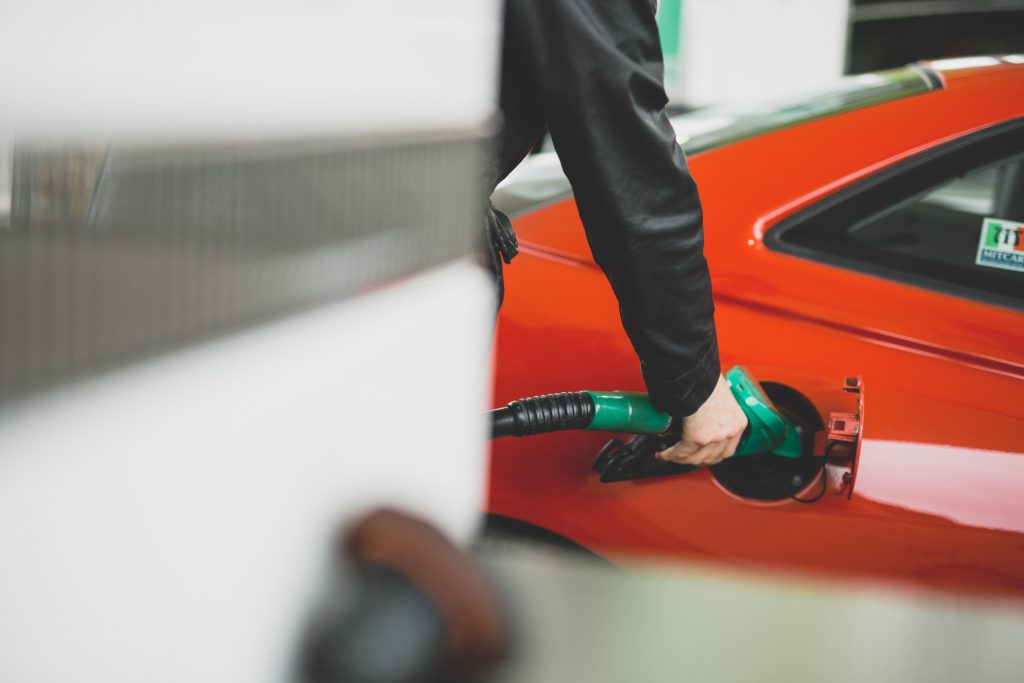
The Petrol Retailers Association says that there will be an advertising campaign six months before the launch of E10 to advise drivers of the difference between the fuels. They will also introduce a website where you can check if a car is compatible, while on the forecourts fuel pumps will be labelled with a warning.
Needless to say, the introduction of such a website can’t come soon enough, and accurate, reliable information will be key to helping vehicle owners take appropriate action.
How can I check if my car is compatible with E10 fuel?
Checking whether or not your car is compatible with E10 fuel is simple, in principle. You can go to the government site’s E10 vehicle check page found via this link, enter the brand of car and see what advice is listed. However, in practice, Hagerty has found that some of the information provided is unreliable.
For example, it lists all BMWs of all ages as being compatible with E10 fuel, which patently isn’t the case on older models made before circa 2000.
When Hagerty questioned the reliability of the information, the Department for Transport responded that the data was provided by the European Automobile Manufacturers’ Association.
What is the alternative to using E10 fuel?
The good news is that super unleaded is set to remain at the E5 standard for five more years after the introduction of E10, according to the PRA. And most E5 currently only actually contains 2-3 per cent ethanol anyway.
The bad news is that it costs more – typically 15 pence per litre. So each time you fill up it could cost you an extra £6-10.
What can I do to protect my classic car?
Guy Lachlan, MD of Classic Oils, says classic car owners could face costly preventative maintenance. “You’ve either got to use fuel with no ethanol or change the materials that don’t like it,” warns Lachlan.
“If you are in any doubt about your rubber fuel lines, change them. Get rid of your fibreglass petrol tank and install an aluminium one. The other thing ethanol really doesn’t like is solder. If you are running a soldered float in your carburettor still then think about carrying a spare – they’re generally quite easy to change.”
Experts have also warned that even modern classics with turbocharged engines could be impacted by the switch.
Will E10 cause problems for cars in storage?
When it comes to storing your car, if it is older than 1996 and doesn’t have a catalytic converter, you can use a lead replacement additive such as Castrol’s Classic Valvemaster, which can help prevent corrosion as it also contains an ethanol stabiliser. It’s endorsed by the Federation of British Historic Vehicle Clubs.
For modern classics there are catalyst-friendly additives available such as Millers Ethanol Protection Additive or Lucas Oil Ethanol Fuel Conditioner, but your best advice is to check with the vehicle manufacturer or an owners club.
The other option, says Lachlan, is to make sure that you don’t give the ethanol a chance to absorb water from the air by filling the tank fully, sealing it, or conversely, fully draining it before storage. (Hagerty has more tips for prolonged storage of classic cars, here.)
What if I fill up with E10 by mistake?
The RAC advises that, unlike putting diesel into a petrol car (or vice versa) you shouldn’t need to drain the tank. It could cause pinking and make it harder to start from cold, but one fill-up shouldn’t cause lasting damage. Just try to top up with E5 as soon you can – ideally when you’ve used at least a third of the tank – and don’t leave the car in storage until you’ve done so.
Where can I find more information about E10 and classic cars?
There is a wealth of information on the website of the FBHVC, including detail of the materials that could be adversely affected by the ten per cent bioethanol mix, and approved after-treatments that can help guard against corrosion.
For younger vehicles, car manufacturers and their franchised dealers should be able to provide guidance. Alternatively, for older models, seek advice from a reputable local garage or your chosen specialist for your classic or modern classic car.
Read more
Opinion: What the government doesn’t tell you about E10 fuel
Will synthetic fuels ride to the rescue of classic cars?
Petrol-powered motorcycles and mopeds to be phased out from 2030
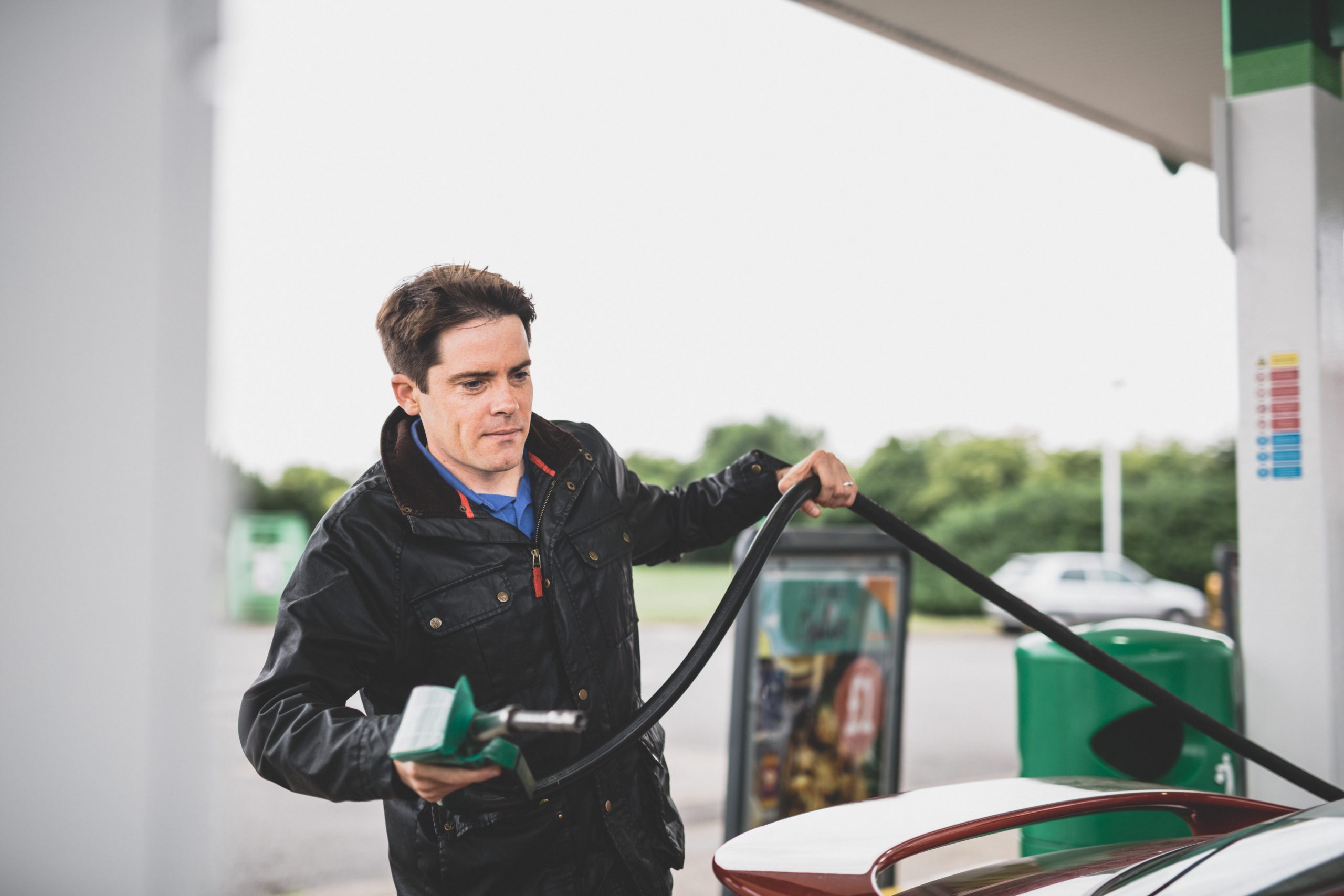
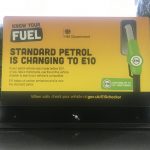
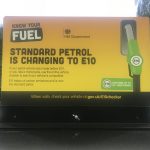


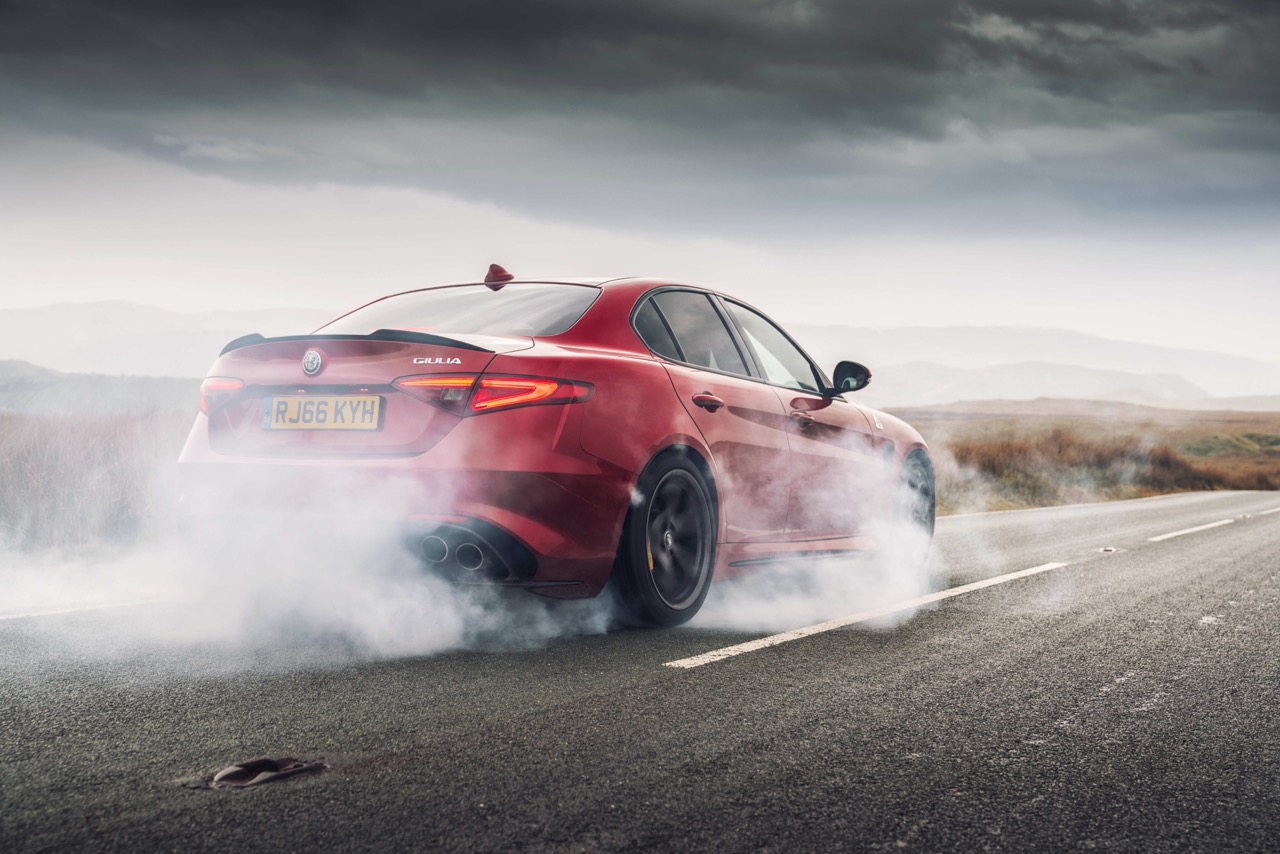




I believe ethanol up to 15% was in fuels like Cleveland Discol up to the 60s. Their ads. said ” Its the alcohol that gives more power” and such like. So cars of that era have lived with it before, I do remember that petrol pump diaphragms used to fail more often then.
First reaction to the ethanol story is why not mix E10 with super unleaded at 50/50 or maybe 40/60 to achieve present E5 levels?
having flown model aircraft for many years using 80% Methanol I wonder if the ‘problem’ is being over stated. Methyl and Ethyl are very closely chemical related and I can say that problems are basically non existent. also the much lauded aluminium corrosion does not occur in our 90% alloy engines and peripherals so maybe time for some proper testing, not just listening to perceived wisdom – remember the millennium bug?!!
I inadvertently filled the tank of my 1972 Porsche 911 with E10 fuel in Denmark on a return journey to the UK. It made for a very uncomfortable journey particularly in low speed areas. When back in the UK the cure was to fill with Super Unleaded ASAP, a fuel that I continue to use. Future continental fill ups will have Millers VSPe Power Plus additive at 50ml to 50L petrol to prevent ethanol corrosion
I inadvertently filled the tank of my 1972 Porsche 911 with E10 fuel in Denmark on a return journey to the UK. It made for a very uncomfortable journey particularly in low speed areas. When back in the UK the cure was to fill with Super Unleaded ASAP, a fuel that I continue to use. Future continental fill ups will have Millers VSPe Power Plus additive at 50ml to 50L petrol to prevent ethanol corrosion and boost the octane rating.
Cliff, really interesting to hear of your first-hand experience of this issue. How was the 911’s engine after you’d run the fresh tank of Shell V-Power through it? Is everything okay now? And would you consider speaking with me about this, please, via enquiries@hagertyinsurance.co.uk?
Well we have super unleaded til 2025 so plenty of time to prepare.il just have to use additives.
As I work in the sugar industry, my comments might not be a little hard-to-swallow. 1 Ethanol is hygroscopic, which means any groundwater-leaching in underground petrol storage tanks at filling stations is better dealt with when ethanol is included. 2 Perished rubbers should be replaced by owners, no ifs no buts. 3 Ethanol is 30% less dense than petrol, therefore lower MPG – obviously. But at E10, there should be no difference because…. 4 any blend below 20% is simply an oxygenate replacement (instead of nasties like Toluene) and improves combustion as a result. 5 E5 will still be available for the next 5 years, so this is really about the minority holding up progress. 6 Food vs Fuel is no longer relevant today, the main global issue today is food access (and the fact that some in the world are going hungry while others are dying from excess). 7 Cold starting is not an issue until you get to above E85 (the balance 15% petrol prevents this issue). 8 The 10p additional cost is partly because ethanol is cheaper than petrol, it is also less-taxed. If you want cheap fuel, you should consider E85 like they have in France. 9 Any car owner who still things petrol is a single product is wrong, it is a blend of many chemicals in order to comply with environmental regulations. Changing one chemical for another is a continuous process, the only difference is that this one is not produced by oil majors.
can I use this new fuel in my lawnmower?
That’s a good question, Stuart, and will depend on the year of manufacture. The best advice would be to check with the manufacturer. Let us know what they say.
They want us to use electric motor is not petrol
I only own classic cars.. I know my mpi mini is OK.. As its fuel injection not carbs.. But i cannot find my MGF vvc in any list of compatible cars…
It is possible to remove most of the ethanol from the fuel . I’ve been doing it for sometime.I also use additives
To add further balance. This does not mean E5’s future is finite. Available via Google for all to digest, the Federation of British Historic Vehicle Clubs’ press release dated 6th March 2020 reveals just prior, the Government published a consultation on proposals to introduce E10 petrol as the standard for fuel across the UK. Within it, the lead proposal would introduce a minimum ethanol content of 5.5% for standard ‘premium’ fuels in 2021, whilst – and this is important for historic vehicles – maintaining the current E5 blend in the ‘protection’ grade.
The same day as the consultation was announced, FBHVC Chairman David Whale attended a meeting at the House of Commons with the All Party Parliamentary Historic Vehicles Group, chaired by Sir Greg Knight, to reinforce the concerns of the Federation’s members directly with MPs. Rachel Maclean, Parliamentary Under-Secretary (Department for Transport) abridged response acknowledged E10 threat to older engines. “For those vehicles, the Department remains committed to ensuring that E5 is retained as a protection grade, if E10 is introduced.” Possible storm in a fuel tank?!
https://www.veloce.co.uk/store/Classic-Engines-Modern-Fuel-The-Problems-the-Solutions-p151478624
The above link is to the result published following tests conducted at Manchester University, using an old technology engine, and various fuels easily available.
If ethanol is going to be a worry to old vehicle owners, then buy the book, and give it a thorough read, several times, to understand how today’s petrol affects old technology motors.
The tests showed that, effects on old or marginally maintained fuel systems aside, old technology engines will likely run better on E10, than they did on current, or part fuels.
Its largely down to the ethanol offsetting the effects of a phenomenon known as cyclic variability.
The book is certainly worth a read. The results may also debunk much of the urban myth currently doing the rounds regarding ethanol in petrol?
Perhaps even the RAC, and the authors of this article should also take a look?
E10 is suited for use in all petrol engines no matter the age, make or model.
The RAC adopted the extremely conservative and mistaken assumption that “Where no information was available it was assumed they were incompatible” when reading EU manufacturers’ decade-old legal positions on E10. But there was information available, and lots of it, which the RAC should have considered before publishing such important and misleading guidance. E10 has been the standard in the USA for decades and is used in all makes and models of cars including vintage cars, and not a single incident of E10 incompatibility has been reported. There are no differences in materials or engine technologies between the USA and the UK. The notion that E10 might not be suited to some vehicles has been redundant for decades in the USA. There are numerous reports and studies to this effect. A dozen EU countries use E10 and while most of them also offer E5 there have been no incidents of people inadvertently filling up with E10 and experiencing adverse consequences. All told, E10 is the standard fuel in regions with fleets totalling half a billion petrol vehicles and there simply aren’t any issues.
The hypothetical “issues” that supposedly arise from ethanol being hygroscopic or corrosive remain just that: hypothetical. Real world empirical evidence on a massive scale conclusively demonstrates the owners of vintage cars may use E10 with full peace of mind. None of the negative theories stand up to scrutiny.
In a few years from now UK drivers will have forgotten the matter. In the meantime journalists will be tempted to uncritically copy and paste the RAC’s misleading guidance, propagating it further. There will be much unnecessary anxiety and cost arsing from it (maintaining E5 in parallel with E10, etc).
For more on this: http://www.introducinge10petrol.co.uk and https://www.euractiv.com/section/agriculture-food/opinion/e10-safe-in-all-petrol-cars/.
Note: Hagerty Insurance in the USA has been involved in dedicated research for car collectors to investigate the possibility of long-term effects on vintage vehicles of ethanol blended petrol. From 2006-8, Hagerty, together with the Kettering University Advanced Engine Research Laboratory conducted a comprehensive study to address that concern. The research determined that there was no difference in performance between carburetor engines running E10 and those with more modern direct injection systems. http://www.hagerty.com/articles-videos/articles/2009/03/02/ethanol-demonic-or-devine
I hope this is helpful.
Best regards,
James Cogan, 14 October 2020
I believe the greatest concern must be for owners of early fuel injected vehicles. If fuel line degradation is an issue it’s less of a problem for a carburettor engine, fuel is essentially sent from fuel tank to engine via a pump and the carb. and a straight forward fuel line. Fuel injection engines however, generally have vehicle specific pipes with banjo fittings to connect them. The cost of replacing these, often difficult to find pipes, could be considerable….imagine something such a Jaguar V12 , the cost of replacing all the fuel lines in one could well ruin you!
Research performed at Manchester Universality looked at the problems of running classic cars on modern fuel. The tests included E10. This research has been published in a popular book Classic Engines, Modern Fuel. It may come as a surprise to the author of this article that classic engines run better when using E10.
Like many other on E10, this report is little more than scaremongering. Yes the issues it raises do cause some problems but they really are not as bad as they are portrayed. What is worse it does not report on the most serious problem with any ethanol blended fuel. One that can be easily avoided if you know about it.
I suggest readers look at a definitive report that is based on real research that puts the problems caused by ethanol blended fuel into perspective.
Hi there..ok so on the subject of using additives..anyone use Tetraboost? The only ‘real’ lead fuel additive??
I own a couple of pre 1972 classics aswell as a 1949 cadillac..would this the better option to use? Any advice would be grateful..thanking you
Working as a trader of used trucks & buses, I advise to be careful when leaving a fuel tank, filled with ethanol (I had some city buses running on ethanol) After a while (more than 1 month) I had problems with algae formation, which blocked fuel line as a result.
Also, think about your motorbike, where fuel tank is higher than fuel pump or fuel regulator valve!
I have a 1964 Singer “Vogue” 1600 cc, c/i ohv ( unleaded converted) and 2 yrs ago I filled a jar with E5 petrol and put a sample of parts ,ie, brass, alloy, steel, rubber, AC pump diaphram, etc and as now Feb 2001 I have not noted any serious problem when i examine them, As someone pointed out, Ethanol was advertised as an upgrade fuel for years ie, “DISCOL” etc so why all the panic?
Edward motocyclis
My main concern is the effect on rubber in the fuel system, I have already had to replace the fuel taps on my Triumph Bonnville because the swelling of the rubber made turning on and off of the petrol taps very very tight(snapping off lever tight). The corroding of carburettor alloys is a worry as I also have two Japanese bikes and then the elephant 🐘 in the room, my beloved mk 2 golf GTi, there are rubber parts and o rings in every part of the fuel system, will I be able to get an ethanol o ring kit for the metering head, fuel pump and accumulator, notwithstanding the injector lines and o rings.
Ethanol fuel used on carburettor motorbikes in freezing winter conditions result in carb icing -low power and stalling.additives needed to resolve the issue.
Frequent blockages to two stroke carb jets.unable to start.
Fuel degrades quickly.
Causes many additional maintenance problems.
Already affected by E5, destroyed the fuel pipe on one lawnmower and rotted the float needle tip on another. I also fly a microlight that has fibreglass/ carbon fibre fuel tanks bonded into the structure presently I drain the tanks after every flight but I can’t remove fuel from the carburettor and there will be some residue in the tanks, do I just accept it rots as I fly?
I run a 1964 MGB. It has the standard leaded head and I use an lead replacement supplement in ordinary E5 petrol. I am now confused after reading all of these posts. Do I keep running as I am or can I use the E10 or super unleaded?
When I first started driving, about 1967, it was common to give a squirt of redex into the tank for every gallon of petrol. I believe this will become the norm again with the required additive for older cars.
I am totally confused over the whole issue of E10. I have owned my Morgan plus 8 for 35 years and don’t plan on getting rid of it any time soon. I would ask those in the know to give the matter some objective analysis and then publish a definitive response to the problem. If E10 genuinely poses a problem, then someone please come up with a solution. With so many car enthusiasts, engineers and motoring organisations, when will we be given clear guidance on this issue?
Thank you in anticipation of some useful information coming soon.
Hi. I own a well maintained 1997 xk8. Does anyone have any suggestions / information, that might better inform me what is the best fuel for my car. Cheers Wade
Hi Wade. In the first instance I would suggest asking the manufacturer, Jaguar, for its recommendation as to the suitability of E10 fuel. However, if in doubt, the simple answer is to switch to Super Unleaded once E10 is introduced – assuming you aren’t already using it?
I have only recently become aware of this proposed change. I only run classic cars albeit in a breathed on state: 1956 oval window beetle (1776cc 100bhp engine), 1968 vw beetle 2007cc 130bhp), 2002 bmw mini cooper stock shopping trolley and a 325bhp 2.4 turbo volvo t5. Guess I am screwed after 2025?
It seems once again that the car owner/enthusiast is blamed and paying the price for what is political posturing to gain party kudos. Benefits of electric cars are a myth until battery technology has moved on further, lithium mining and processing is cleaner and the national grid ceases to use fossil fuel to generate what will become an increasing demand for electricy. At the moment the infrastructure doesn’t meet the proposals.
It’s the same with suggestions that we eat less meat because of the flatulence from cows contributes to climate change. Go back 200 years and there were more buffalo and bison roaming the plains of North America than there are cattle in Europe today (source David Attenborough). Oh and Britain has just signed a new trade deal with Australia to import more lamb and beef????
It’s all garbage…..if you want to reduce greenhouse gasses then sort out the vegetable matter in landfill. There is a landfill site in the far east producing more methane and general pollution than all the cars and livestock in the UK, (source National Geographic).
So let’s leave the car owner be until some of the real culprits of climate change are challenged. By all means look at vehicle usage: incentivise the use of electric cars as city centre run abouts, penalise the use of Chelsea tractors for the school run and use the rail network to bulk transport goods rather than artic with 40 foot trailers.
Thereafter use the wind turbines to generate power but also adapt so they produce hydrogen as a byproduct and let’s all go hydrogen fuel cell. The offshore wind farm off the NE coast of Scotland is producing enough hydrogen to power the buses in Aberdeen via hydrogen fuel cells….it’s a little heralded success story.
I’d rather convert my classic cars to HFC than modify to use e10!! If we have to go e10 or higher then i think we need access to e5 or super unleaded etc for longer than 5 years. Afterall the motorist deserves some payback considering the contribution made to the Treasury over the last 70 years?
Rant over😉
James Mills.
Good comment re the use of super unleaded but of course an engine needs hardened valve seats etc to use even super unleaded unless you supplement with an octane booster type supplement.
Why are people so keen to keep old cars and bikes they may have been great in their day but compared to today are noisy smelly and just plain rubbish. Move on people buy a new vehicle leave these old relics in museums where they belong
Because for some people vehicles are much more than just transport. The same
way as for some people wine is much more than just something to drink & art is much more than just a pretty picture to cover a wall.
1981 Honda C90 Supercub …
Will it die using E10 ?
Can I use Super Unleaded & will that still be available ?
Hello Steve. C90s are so mechanically simple I’d be surprised if you couldn’t run it on whisky! But broadly E10 shouldn’t cause you too many issues. If you were concerned, perhaps replacing the fuel line with one better suited to higher concentrations of ethanol, and if the bike is likely to be sitting for a while squirting some fuel stabiliser in the tank should do it. Cubs are one of the most resilient machines on the planet so I suspect you’ll be better off than many.
I have a 1991 miata eunos will this still run on this e10 fuel as what I have read so far is some what confusing I would be great full on an advise thanks
Hello Alan. As with most vehicles your car should run perfectly fine on E10, but you may wish to double-check the health of the fuel system, particularly fuel lines, to reduce the chance they’re affected by the ethanol.
I have a mint MG 1.8 turbo ZT saloon registered Nov 2004 which I intend to keep as long as possible.I am a bit confused over this current petrol issue.
Can I safely use E10
The current recommendation is to check the Government’s E10 compatibility page for your chosen car.
Eddie. Did you get somebody to write that comment for you? Not the words of an educated man. Old doesn’t mean rubbish. My local MOT tester was astounded at how clean my T5 was burning…..put a lot of younger diesel Golf’s to shame. So you keep your comments and your modern tin/plastic box cos I’ll still be driving my classics whilst you are working out how to boil your kettle and and charge your e-Box at the same time.
Incidentally the yanks have been using e85 fuel for some time. By definition e85 is made from 85% plant based ethanol (corn), and 15% gasoline. However the statute allow that e85 to contain anything between 51 and 83% ethanol. It is reported that mpg is lower but performance on a tuned engine higher. It is also significantly cheaper.
Will the duty on e10 in the UK be lower or will the motorist continue to prop up the Treasury?
Maybe we should all run illicit stills in our back gardens and run our cars on potato peelings derived moon-shine. Now where’s my Moon eyes sticker?
Again we are being screwed over by the government while countries like china produce the most amount of c02 , gets get our 1% down what a joke!
I own a 2011 Japanese Hi-Ace import. Would an LPG conversion solve the problem
I own a 1959 GMC100 with a 326ci pontiac v8, I currently just use a lead additive, is there any other additive I can use in order to use E10?
Eddie please go to a classic car show and ask yourself why it is rammed packed with people of ages if these cars are “rubbish”…
O dear like lambs to the slaughter, The RAC, AA said the same would happen when we changed to unleaded but we did the mods that we needed, the same will happen here its all scare mongering by the media
I own several yamaha rd250/350 from the seventies I ride restore and maintain these, since the introduction of e5 I have found that tanks rust fuel lines perish engine seals have gone soft petrol tap seals perish , engines are running leaner and hotter , mpg has suffered and no performance gain or loss , carbs when inspected they have a greenish tarnish residue and pilot jets seem to block quite often , these machines are not used as every day transport weekend ride outs solutions are to replace any rubber components to ethanol friendly , up the main jets and reduce compression ratio/change ignition timing run engine until carbs are empty and drain tanks over the winter and pour oil in tank and swish it around , or use super unleaded some are ethanol free esso 99 in some areas are ethanol free in the uk but check , personally we are being screwed over by governments and the petrol industries fuel has got more expensive we are taxed on co2 emissions so by using e10 our vehicles should be taxed lower no one has said by using e10 by how much it lowers co2 on any particular vehicle , without the motorist the governments would tax you just for living
this entire fuel issue does confuse me a bit, but iv read all the info and im hoping my 1989 CBR400RR will survive if i just use super unleaded, (i drain the tank anyway over winter), but im unsure if i also need to add an additive of some kind as well….i was also told that the supermarket petrol stations dont do super unleaded, only the likes of ESSP, BP etc will sell it…is this true??
With regard to the remarks by Eddie and the sensible replies by Pelland I own a 1989 v12 jaguar xjs, I doubt that Eddie knows what this is, the co emissions reading each year on my MOT is 0.4 to 0.6. can’t get any cleaner.
So surely super unleaded is staying at E5 yes?
I’ve started using it in my classic mini.
What happens if you can’t afford a newer car if your car is not acceptable with the changes, once again government screws low wage workers who can’t afford more expenses dout they going give us a new car
I would not consider buying a car with a lithium battery. They are too dangerous and too dirty. There must be a new type of battery before we can nearly all go electric. Lawn mowers ? I had an electric once. The battery was simply a lead acid car battery. They dont like being stored through winter so dont last long. Got to be a mains cable which has its own drawbacks. I second the fact the being an ex aero modeller and used lots of methanol in the past, this article is an overkill. The dangers are nothing like as great as tbey are making out. I have used soldered tinplate tanks full of nesr pure methanol and they havent leaked. Same as the fuss about unleaded. I had a vehicle that easnt supposed to be compatible wuth unleaded. Yes tbe valves went, at 140k miles!.
As regards flexible fuel lines the Ethanol Proof Specification is R9. R6 is Ethanol ‘resistant’ and will eventually degrade
Cleveland Discol with alcohol in the 1950/60s affected the fibreglass fuel tanks of competition motorcycles in those days,in recent years a friend who owns a Rickman Mettise 500cc scramble motorcycle which had its original fibre glass fuel tank used 5 % ethanol fuel which resulted in the the fibre glass being ruined, My vintage Stuart 600 stationary engine has a small Amal carb,leave ethanol /petrol in it and the small jet blocks in no time. A half ton Ruston Hornsby 1923 stationary engine has an adjustable needle main jet this keeps the jet clear, though what will happen to the brass and copper fuel fittings ? its as a case of waiting to see what happens,the original fitting cannot be replaced and would look wrong if replacement with stainless was made.
I go to work so I can afford to enjoy my classic car I don’t enjoy paying the tax man so if I can’t have a classic car what have I got to work for
Hi I have a 1947 standard 10, I am trying to find out more information on if my car will be compatible with the e10 petrol. I have been on the gov website and the make or model is not on the list….also if I was to use some form additive along with the e10 would that prevent some of the problems that will occur. If anyone know of any additive that will work please leave a reply.
Thankyou.
I have run all my classics over the years on Super Unleaded, so no problem there.
I am interested in what might happen after the envisaged 5yr availability of this runs out. Happy to use an additive providing it works!
No it didn’t answer all the questions!!!!!
What is the best solution regards this new fuel, I run a1972 Pontiac Celica
I’d like to know if my draw thru turbocharged 1980 Corvette can run on E10.
As the first post on this topic ( “Discol” had 1up to 5%ethanol in the 30s to 60s} and having looked at the rest, having followed up the Manchester research on an old MG engine. I am not worried. However clearly this research is not been read by many. Do not panic Mr Mannering!
Surely the very fact that a government, hell bent on introducing E10 in the full knowledge that it’s subsequent useage could result in serious injury or loss of life is committing a criminal act?….
I am really fed up now the government is introducing E10 fuel
I have a classic VW Beetle
I will have to put the super petrol in my tank
Why are the fuel prices not lower now there is ethanol in it !!!!
Also what about all the land that is being destroyed to build more and more properties Trees give us oxygen and also the wildlife is affected
People love their classic vehicles and it’s being taken away because of new fuel
Also I think I’m right in saying with electric cars in the old weather they might not start
And another point what about the contamination of the sea by rubbish and illegal dumping of waste into it killing the fish etc
Now you’re killing our beloved classics
What is this world coming to
We love our classic vehicles so I suppose they’ll become another thing that will be wiped out
“𝙄 𝙖𝙢 𝙧𝙚𝙖𝙡𝙡𝙮 𝙛𝙚𝙙 𝙪𝙥 𝙣𝙤𝙬 𝙩𝙝𝙚 𝙜𝙤𝙫𝙚𝙧𝙣𝙢𝙚𝙣𝙩 𝙞𝙨 𝙞𝙣𝙩𝙧𝙤𝙙𝙪𝙘𝙞𝙣𝙜 𝙀10 𝙛𝙪𝙚𝙡
– 𝙄 𝙝𝙖𝙫𝙚 𝙖 𝙘𝙡𝙖𝙨𝙨𝙞𝙘 𝙑𝙒 𝘽𝙚𝙚𝙩𝙡𝙚 –
𝙒𝙝𝙮 𝙖𝙧𝙚 𝙩𝙝𝙚 𝙛𝙪𝙚𝙡 𝙥𝙧𝙞𝙘𝙚𝙨 𝙣𝙤𝙩 𝙡𝙤𝙬𝙚𝙧 𝙣𝙤𝙬 𝙩𝙝𝙚𝙧𝙚 𝙞𝙨 𝙚𝙩𝙝𝙖𝙣𝙤𝙡 𝙞𝙣 𝙞𝙩 !!!!”
I’ll tell you “WHY” Susan….
Basically because the Westminster Gov’t MUST justify their (laughable), £15,000 every two-years “Pay Rise”.
Make me vomit they do, administering themselves a totally unjustifiable ‘Pay-Rise’
Such “stressful” work, I’m sure – (don’t delete – sarcasm & cynicism intended)
Meantime, NHS Nurses struggling to live above ‘the bread line’
Now you know as to ‘why’ Uncle Guy Fawkes came just 400-years too early (sighs).
Am in precisely the EXACT ‘same boat’ as you are, being the owner of several “classics”
I even bought a (cheap but mint/newish), Suzuki GS500 with just 9,000 miles (on clock)
Forum said “DON’T put ethanol inside, to clean the (stood awhile) carbs” (Jets “gummed-up”)
Why ?
Because it eats away at all the carb’s gaskets & rubber ‘O’-rings, plus fuel-lines
(as others alluded)
I have several others, beauties, including these two ‘porsche.911-eating’ stunners…
https://flic.kr/p/26Ds2sW
https://flic.kr/p/27KhVKK
I have NO desire to relinquish either of them – (I’ve owned the Red one for 36-years now)
Will ‘Super-Unleaded’ suffice ?
How are/will they cater for the Gazillion “classic” bike & car owners ?
Plus even those with land & tractors, plus tractor-mowers, like MY elderly folks ?
I’d be VERY keen to hear HOW & what additives I might use, to counter the “Ethanol Damage” ?
Reply to Stuart. Best to use Aspen ethanol-free petrol or Aspen ethanol-free two-stroke in your lawnmower. I’ve been doing this for 2 years. Also Bradex Easy Start to get it going. The garden tools place had two glass demo tanks showing how even E5 dissolves plastic while Aspen doesn’t. Aspen costs £18.95 for 5 litres. In cars, if you use E10, and only drive short distances, best not to fill beyond 1/4 to 1/2 full so you have to refresh the fuel more often before it absorbs too much moisture and starts to emulsify.
Even E5 fuel corrodes brass – so if you have a car with SU carbs you need to add an ethanol stabiliser to counteract the corrosion – my question is why can’t the refineries add the stabiliser to the fuel in the first place!
And this is not hearsay – I have several carb needles totally ruined by the fuel.
We should make a protest now if we don’t
They will cut the e5 super loaded soon
We gonna end up with stress I have few classic cars too
Didn’t they use methanol in MG engines at Brooklands in the 1930s
I have used my 1926 Alvis for 50 years, lead free was not an issue, as it was not put into petrol until the mid 1930s. What is the answer for Pre war cars? (Not the Falklands war.) I hope to be using the car when it is over 100 years old, and still a practicle and useful enjoyable drive, and not a throw-away and to be yet again replaced convenience article!
I have a Mazda bongo 2000 petrol year 2000 they say models after 2002 will take e10 I can’t see what the difference is in 2 years would they have changed all the seals a petrol tank any advice out there would be appreciated.
It’s interesting that the Gov website list of classic cars doesn’t even have LOTUS !
Considering it is one of the few actual British Classic Car manufacturers this is appalling.
Classic fuel solutions can supply an ethanol free fuel. Also Avgas is free of ethanol and 100 + octane 👍💪🏽
I am 82 years of age , i somewhat look forward to death as it seams that every year something is taken away from us and replaced by something we do not want.
I believe that e-fuel can be the future if scientists try hard enough. I like classic muscle cars, and I hope that someone somehow will find a fuel which would be compatible with all cars classic and no classic. Besides, climate change is not caused by cars’ emissions, but is just a natural phenomena and not caused by cars’ emission. This is a lobbyist issue. Emissions from cars have nothing to do with climate change.
Thank you for this useful and interesting information relating to leaded fuel vehicles. However, leaded fuel vehicles span a lengthy period and a consequential leap in combustion engine technology. I run a 1936 vehicle and therefore am grateful for whatever information I can glean on the matter concerning older vehicles in particular. To broaden the topic, I would encourage owners of older vehicles to share their knowledge and experiences.
Thank you Hagerty.